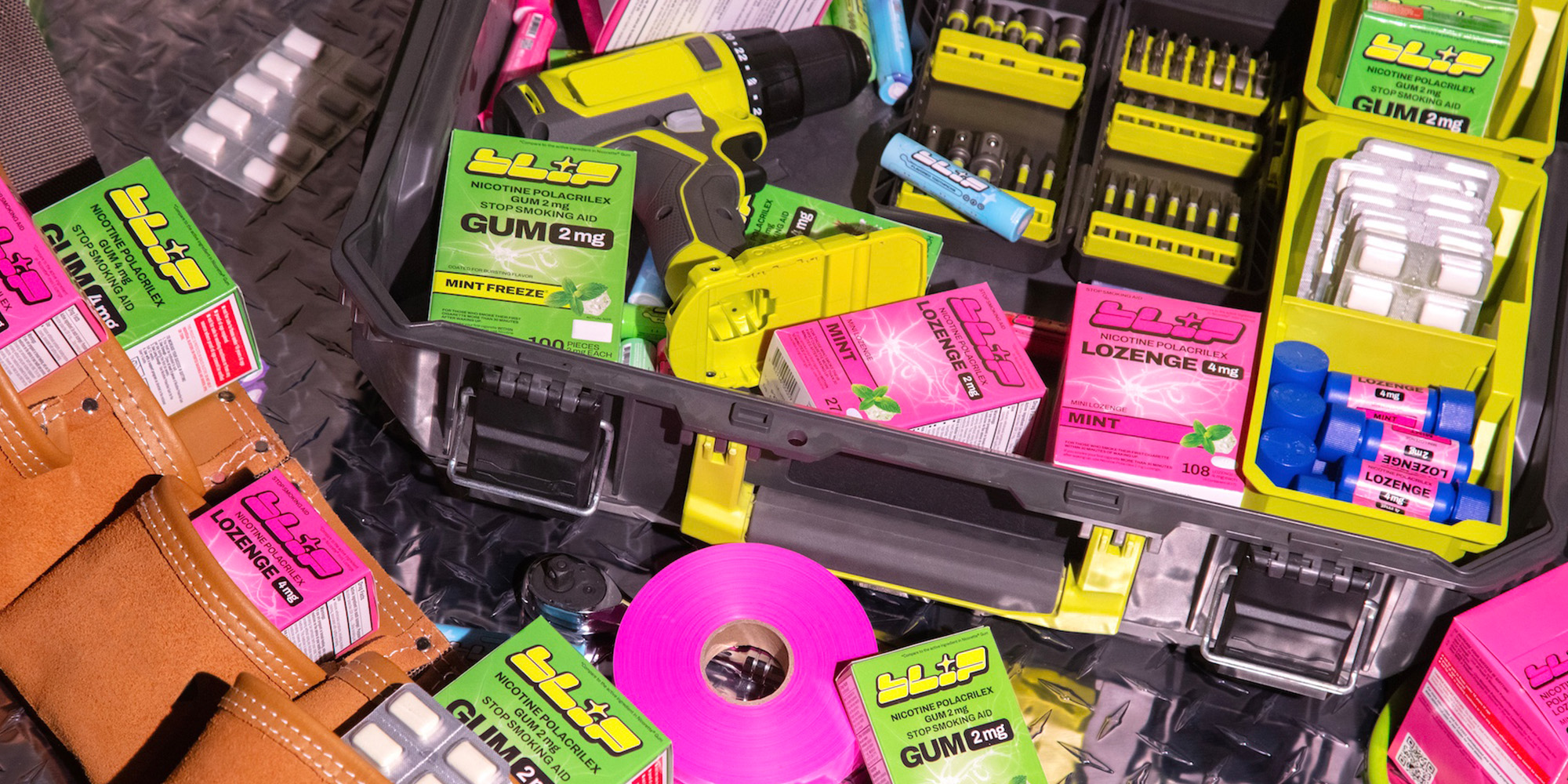
Wellness For Quitters: Brands Are Modernizing Products That Help You Kick A Habit
David Rentein started out as a social smoker, but his smoking became a regular habit while he was at the helm of successful meal replacement startup Soylent. When his fiancé told him he had to quit, he didn’t believe it would be a problem.
“I guess I thought I was special, but it ended up being quite difficult for me,” he recounts. “That’s what led me to get interested in nicotine and the science behind nicotine delivery.”
A lightbulb moment for Rentein was discovering that nicotine isn’t the principal cause of harm in cigarettes. He decided to create products to help himself stop smoking, but not necessarily avoid nicotine. In 2016, Rentein and his Soylent co-founder John Coogan founded Lucy, a range of tobacco-free “intelligent nicotine” gum, pouches and first-of-its-kind capsules called Breakers designed to be healthy alternatives to smoking and vaping. In 2020, the brand raised $10 million in funding.
Lucy, Apothékary and Blip are among an expanding group of consumer brands selling products gaining popularity with people interested in cutting back on or cutting out undesirable substances while positively impacting their wellness with effects like improved sleep, enhanced cognition, deeper social connection and more.
These brands are entering categories like nicotine replacement where dominant brands such as Nicorette have been around for decades, often with messaging and packaging that hasn’t been updated to appeal to younger customers.
Particularly as younger people attempt to stop vaping, companies like Lucy and Blip sense there’s a significant opportunity to tailor products to them. According to the United States Centers for Disease Control, 4.5% of adults aged 18 years old and above used vapes or e-cigarettes in 2021, with people aged 18 to 24 years old using vapes or e-cigarettes at the highest rate, at 11%, compared 6.5% of people aged 25 to 44 years old and 2% of people aged 45 years old and above. Vape brands have demonstrated the power of branding that resonates with young people by fashioning their vape pens after kid-oriented items like highlighters.
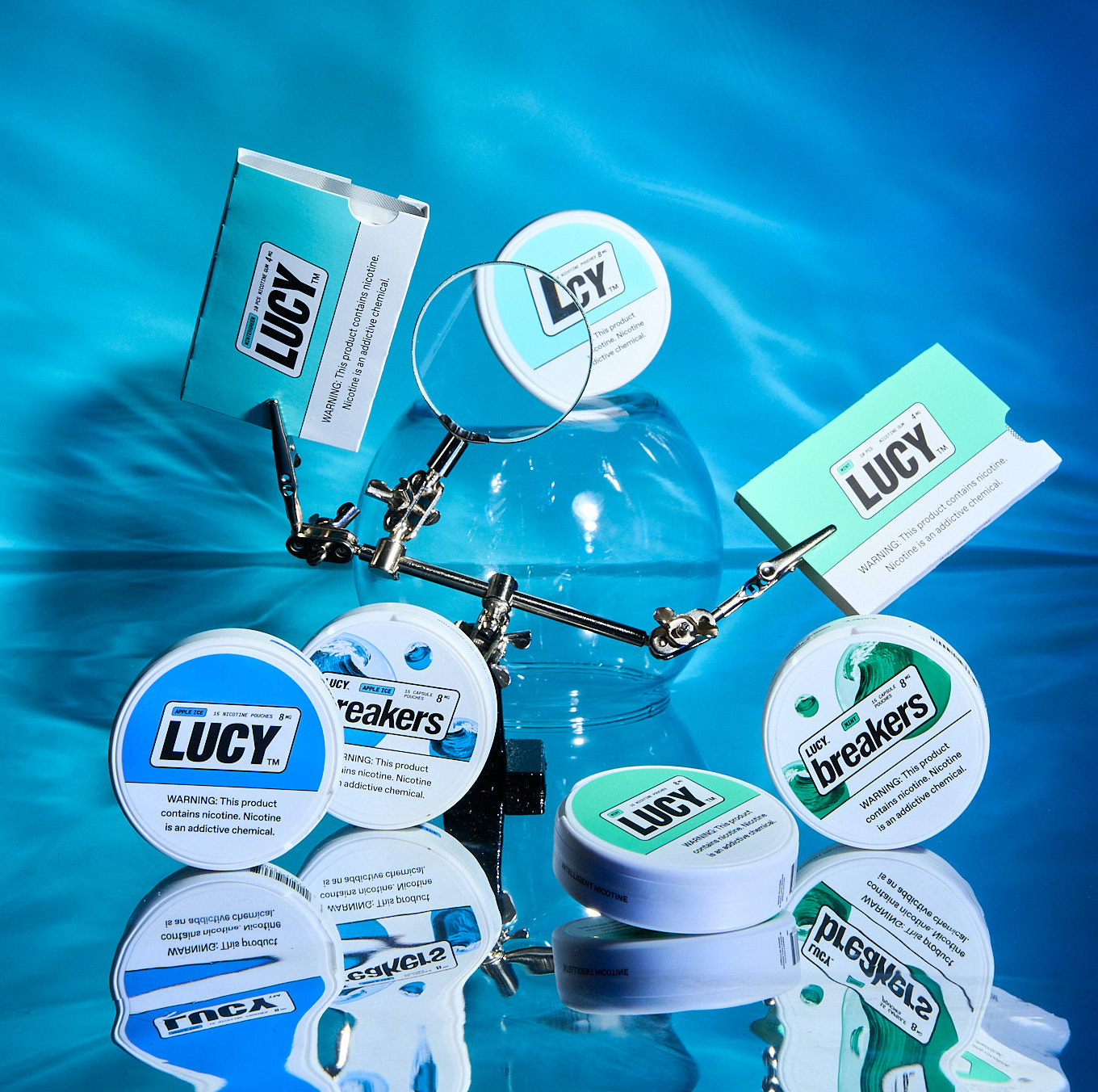
Julie Schott and Brian Bordainick, co-founders of TikTok-loved pimple patch brand Starface and emergency contraceptive pill brand Julie, partnered with Alyson Lord, former director of brand partnerships at Ipsy, and Josephine Lee, a model and DJ known as Princess Gollum, to launch Blip, a line of U.S. Food and Drug Administration-approved nicotine replacement therapy products stocked at select CVS stores in August.
The brand estimates 97% to 99% of nicotine replacement products are purchased in brick-and-mortar stores. Indeed, part of Rentein’s distribution strategy for Lucy is to get the products into as many of Manhattan’s estimated 13,000 bodegas as possible. The firm Prophecy Market Insights forecasts the size of the U.S. market for nicotine replacement therapy market will advance at a compound annual growth rate of 6.5% to go from $60 billion last year to over $302 billion by 2032.
Off and on for 17 years, Lord smoked a half a pack of cigarettes a day and was a smoker when Schott and Bordainick approached her about Blip. A year and a half later, she no longer smokes, thanks to Blip’s products. Lee was more of a vaper than a smoker. Lord says that in excess of 60% of smokers use both cigarettes and vapes, though nicotine replacement products like those by Blip aren’t approved by the FDA for vape cessation yet.
With guidance from Mark Rubinstein, a doctor and head of medical affairs at Blip, Lord says the brand is developing products for vape cessation to “make sure that we can bring the next generation of quitters into the mix.”
Blip considers the assistance it provides smokers and vapers in a larger wellness context. It’s assembling an arsenal of supportive tools, including a quitter community on the group chat app Geneva where people can share tips. “We always look both culturally and clinically,” says Lord. “What else can we combine that really helps the lifestyle aspect?”
Nicotine products like those from Blip, Lucy and popular brand Zyn may soon be considered bonafide wellness products for their benefits beyond supporting smoking cessation. In recent years, biohacking and longevity thought leaders like neuroscientist Andrew Huberman and doctor and author Peter Attia have recognized nicotine as a nootropic packing a number of cognitive benefits.
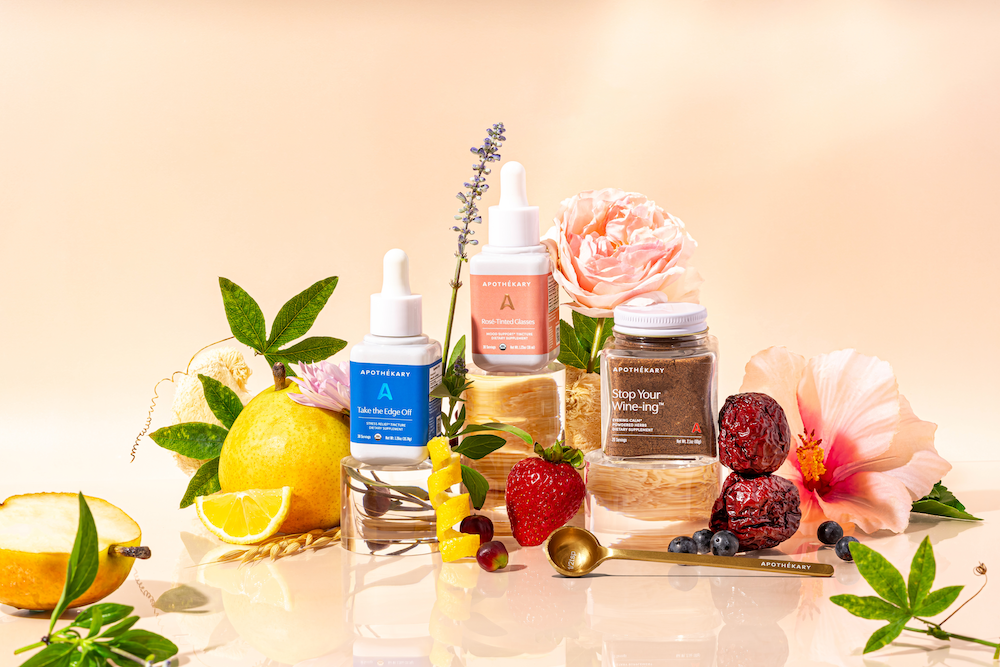
It’s not just nicotine products that people want to quit smoking. Calvin Cordozar Broadus Jr., the rapper better known as Snoop Dogg, raised a lot of eyebrows recently when he announced he’s giving up smoking weed. Whether made in earnest or for promotional reasons, many in the cannabis industry didn’t find it surprising that Snoop Dogg might stop smoking.
Longtime marijuana users have been voicing concerns about the concentration of the weed currently on the market. When Snoop Dogg began rapping about blunts decades ago, the tetrahydrocannabinol (THC) content in weed was often less than 1.5%. Some marijuana products now are greater than 90% THC.
“I don’t want it to seem like I’m attacking them, but people in the cannabis space specifically have been complicit in glamorizing over consumption, and the weed is too fucking strong,” says Olivia Alexander, founder of cannabis and hemp wellness brand Kush Queen.
Today’s super-charged weed has led to the rise of cannabis harm reduction products like Oracle Wellness Co’s Green Out, a product formerly named Hi-Ject that aids people in safely and swiftly coming down from a too-high high. CBD is one of Green Out’s key ingredients, and people are turning to hemp CBD products as lifestyle aids as well as practical facilitators for marijuana usage reduction. They use products like hemp prerolls as akin to smoking marijuana without the THC high.
Furthermore, CBD tinctures may mitigate the physical effects of cutting down on or quitting weed. Kush Queen’s Bôost Liquid Cannabinoid Concentrate is being used by people quitting marijuana. “You can quit cold Turkey with cannabis, but, just like nicotine, you really shouldn’t…I know a few people who’ve started a really-high dose tincture and then as they moved through the bottles, they lowered the dose, and it really eases a lot of the negative effects,” says Alexander. With marijuana cessation, she elaborates, “Your body goes through withdrawal. Anyone who wants to say that it doesn’t is a liar. It can feel different for different people: flu-like pain, lack of sleep is the biggest one that spirals you.” She adds that many people experience vivid nightmares. These effects can go on for weeks or even months.
The blueprint for wellness products that either are antidotes to or replacements for “vice” products is the sober or “non-alch” beverage movement. A long way from watery O’Doul’s beer, it’s transformed into a thriving category encompassing adaptogenic- and nootropic-infused beverages inspired by beloved spirits to be imbibed on their own or integrated into mocktails. “Ready-to-drink” canned beverages from Kin Euphorics and De Soi have ingredients like reishi mushroom and Tulsi extract, and there are numerous hemp-centered non-alcohol beverages, too, meant to cause a buzz without impaired judgement or a dreadful hangover.
Apothékary’s Sober Sips Set features three herbal wine alternatives, two tinctures and one ingestible powder. The tinctures, rosé-inspired Rose-Tinted Glasses and white wine-inspired Take the Edge Off, have sold out twice. Apothékary founder Shizu Okusa says, “We wanted something that was socially acceptable for people to bring out of their bag if they don’t want to drink because it’s still awkward and have something that still actually does the trick for them instantly.”
Okusa didn’t intend to build a wine alternative company, but, as ingestible brand Apothékary has evolved, booze alternatives have become a cornerstone of its assortment. “Stress is the biggest reason that people come to Apothékary,” says Okusa. “Our approach has always been, if you’re grabbing wine because you’re stressed or you’re grabbing cigarettes because you’re stressed or laxatives or energy drinks and all of that, it’s the quick fix. We intend to come in [using] thousands of years of research and ritual and tradition and science meeting customers where they are and serving them exactly where their stress shows up.”
Apothékary’s next launch is Wine Down, a red wine-inspired tincture with ingredients such as L-theanine, elderberry, tart cherry and blue vervain purported to diminish tension and enhance sleep. The brand’s website features mocktail recipes incorporating its products. Manhattan non-alcoholic bar and cafe Hekate crafts drinks with Apothékary’s products.

Kanna, a medicinal and psychoactive—not psychedelic—plant from South Africa that’s been depended upon by indigenous communities for centuries, has become a star ingredient in products for people seeking support for stopping drinking. In clinical studies, it’s been shown to have a myriad of wellness benefits like mood boosting and sharpening cognitive function. Kanna is integral in wellness brand Ka! Empathogenics’ tincture and chews.
Ka! founder Stephanie Wang initially encountered kanna at a plant ceremony 10 years ago. She says kanna isn’t habit-forming, and it’s relied upon in South Africa to treat drug addiction and alcoholism. In addition, it’s a go-to ingredient for tampering compulsive behavior like binge eating. Wang’s favorite benefit of kanna is that it’s an “empathogen.” “That means you have more emotional openness and availability,” she explains. “There is more empathy that’s created and a sense of connection with others, with yourself and with others.”
Naturopathic doctor Cory Reddish sells Ka! and “prescribes” it in her practice to her patients intent on reducing their alcohol intake. She’s a fan of the brand’s chews for patients attending social events. “It honestly allows a deeper, better, more open-hearted connection with people because you do get that increased serotonin effect with it,” says Reddish. “Alcohol tends to be more of a central nervous system depressant or it can be agitating to the nervous system, which is why people as they get older don’t sleep well when they’ve been drinking. Kanna doesn’t have the negative impact on the liver. I use it a lot as an alternative or a way for people to help support that transition.”
Reddish predicts demand for and the variety of wellness products, from toothpicks to tinctures, that uncouple people from deleterious habits will grow. She says, “The idea is not to be on this seesaw where you’re either indulging or depriving because then you’re going to flip back and forth, but to get closer to the fulcrum where it’s not all or nothing or it’s not big benders and then wean yourself off.”
Also bullish on the future of wellness alternatives to noxious substances, Lord says, “The idea of quitting or being more conscientious about what you do and what you put in your body on a day-to-day basis is never going to take a backwards step.”

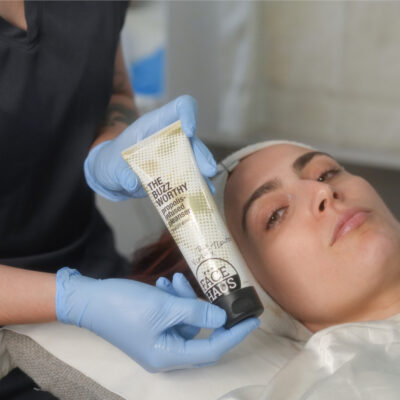
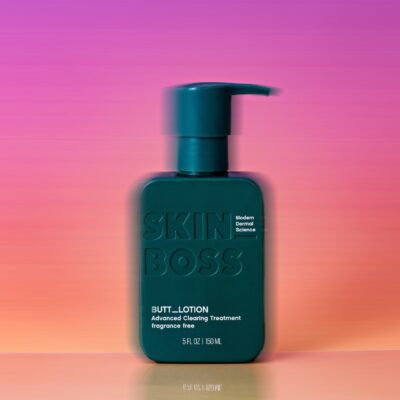


Leave a Reply
You must be logged in to post a comment.